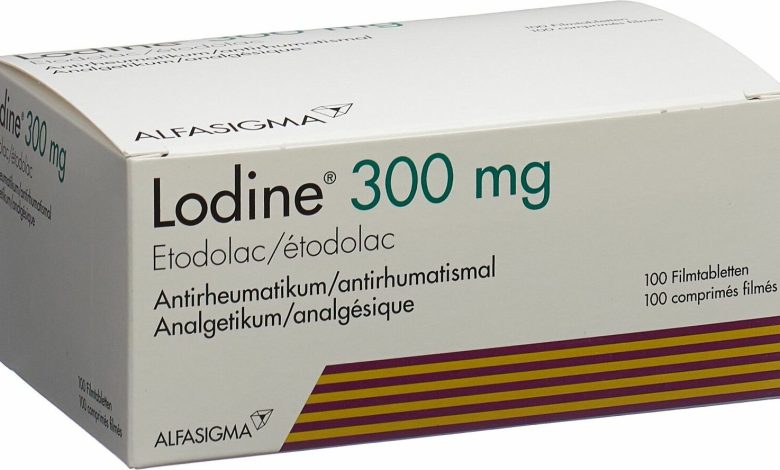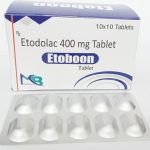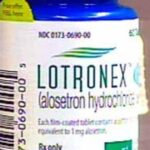Has Etodolac been Discontinued In the United States?

Etodolac more commonly known by the brand name Lodine, is a prescription medicine that belongs to the class of medication called the nonsteroidal anti-inflammatory drug (NSAID). It was patented in 1971 and approved for medical use in 1985. It was approved in the U.S. in 1991.
Etodolac is used to treat mild to moderate pain, and helps to relieve symptoms of arthritis (eg, osteoarthritis and rheumatoid arthritis), including inflammation, swelling, stiffness, and joint pain. However, this medicine does not cure arthritis and will help you only as long as you continue to take it.
This comes in the following dosage forms:
- Tablet, Extended Release
- Tablet
- Capsule
How should Etodolac be used?
Etodolac comes as a tablet, a capsule, and an extended-release tablet to take by mouth. To treat arthritis, the tablet and capsule are usually taken two to three times a day and the extended-release tablet is usually taken once a day. To relieve pain from other causes, the tablets and capsules are usually taken every 6 to 8 hours. Take etodolac at around the same time(s) every day. Follow the directions on your prescription label carefully, and ask your doctor or pharmacist to explain any part you do not understand. Take etodolac exactly as directed. Do not take more or less of it or take it more often than prescribed by your doctor.
Swallow the extended-release tablets whole; do not split, chew, or crush them.
If you are taking etodolac for arthritis, your doctor may start you on a high dose and decrease your dose once your symptoms are controlled. It may take 1 to 2 weeks for you to feel the full benefit of this medication.
Is Etodolac still on the market?
Yes, but Lodine a brand of Etodolac has been discontinued by the manufacturer Almirall Limited. Following the expiry of the Etodolac patent, many companies are now engaged in its manufacturing. While Lodine was discontinued for business reasons other FDA-approved available generic versions of the drug are available with a doctor’s prescription.
However, in October 2020, the U.S. Food and Drug Administration (FDA) required the drug label to be updated for all nonsteroidal anti-inflammatory medications including Etodolac to describe the risk of kidney problems in unborn babies that result in low amniotic fluid. They recommend avoiding NSAIDs in pregnant women at 20 weeks or later in pregnancy. Etodolac is generally avoided during pregnancy and nursing. NSAIDs may cause adverse cardiovascular effects in the fetus during pregnancy.
While etodolac is still available for use in many countries, its use may have been discontinued in certain regions or countries due to various reasons. Some possible reasons for discontinuing etodolac could include safety concerns or low demand in the market. However, it’s important to note that these reasons are speculative, and more specific information would be needed to determine why etodolac may have been discontinued in a particular region or country.
On the safety side, Etodolac can increase your risk of fatal heart attack or stroke, especially if you use it long-term or take high doses, or if you have heart disease. Do not use this medicine just before or after heart bypass surgery (coronary artery bypass graft, or CABG).
Etodolac may also cause stomach or intestinal bleeding, which can be fatal. These conditions can occur without warning while you are using etodolac, especially in older adults.
Call your doctor at once if you have symptoms of bleeding in your stomach or intestines. This includes black, bloody, or tarry stools, or coughing up blood or vomit that looks like coffee grounds.
Do not use any other over-the-counter cold, allergy, or pain medication without first asking your doctor or pharmacist. Many medicines available over the counter contain aspirin or other medicines similar to etodolac (such as ibuprofen, ketoprofen, or naproxen). If you take certain products together, you may accidentally take too much of this type of medication. Read the label of any other medicine you are using to see if it contains aspirin, ibuprofen, ketoprofen, or naproxen. Do not drink alcohol while taking this medicine. Alcohol can increase the risk of stomach bleeding caused by etodolac. Avoid exposure to sunlight or artificial UV rays (sunlamps or tanning beds). This medicine can make your skin more sensitive to sunlight and sunburn may result.
Where Can I Buy Etodolac?
Etodolac is a prescription medication and cannot be purchased over the counter without a prescription from a licensed healthcare professional. To buy Etodolac, you will need to consult with a healthcare professional who can evaluate your medical condition, provide a diagnosis, and prescribe the appropriate medication if necessary.
Once you have a prescription for Etodolac, you can purchase it at a licensed pharmacy in the US, either in-store or online. Many large chain pharmacies, such as CVS, Walgreens, and Walmart, carry Etodolac, as well as online pharmacies. However, it is important to ensure that you purchase medication only from a reputable source and that you follow your healthcare professional’s instructions for use.





